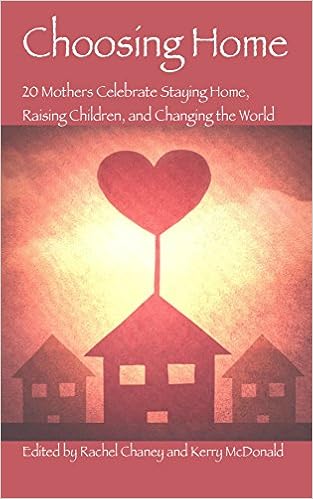Choice and opportunity mean different things to different people. I have been reading as much as possible about President-elect Trump's pick for Secretary of Education, Betsy DeVos. It can be hard to wade through the emotions of political thought expressed in many of these articles to reach some understanding. I think it is a fear of change and innovation and the possibility of a new protoype for American education beyond our 164-year experiment with forced government schooling that drives much of the resistance.
In a recent Washington Post article, Columbia University professor, Aaron Pallas, lays out "worst-case scenarios" for education under DeVos. In one scenario, Pallas warns:
"Money is siphoned from traditional public schools and towards a diverse array of unregulated for-profit and private providers... Almost overnight, the percentage of students enrolled in private schools triples from 10 percent to 30 percent, and the percentage enrolled in charter schools triples from 6 percent to 18 percent.
Coupled with a steady state of 3 percent homeschooling, for the first time in American history, a majority of school-aged children are not enrolled in traditional public schools. States have no consistent mechanisms for holding private schools, charter schools, and homeschooling families accountable for student performance, and American achievement spirals downward."There are many reasonable concerns about uprooting an established societal institution, especially when it continues to be taxpayer-funded. But what often gets lost in these myopic, fear-laden articles is what it actually means in real life. For example, the work that DeVos has done to expand charter schools in her home state of Michigan has been sharply criticized because some of the charters are loosely regulated and aren't showing standardized test results that outperform regular district schools. For true innovation and choice to occur within an American education system, low regulation and little oversight are preferred. We need incubators of inventive ideas that are not tied to government oversight and regulation; otherwise, we simply replicate the singular blueprint of government schooling in only marginally original ways.
There are astoundingly successful and impressive schools and school-alternatives, like Waldorf and Montessori and Sudbury schools and self-directed learning centers, that are private, largely unregulated, and not tied to government curriculum directives and testing requirements. Many of these schools and centers are places where professors of education at elite universities send their own children. Yet, it seems, the fear of "privatization" and its potential impact on the archaic model of coercive government schooling outweighs the hypocrisy.
The concern about test scores, for instance, in some of the Detroit charter schools that DeVos has advocated is used as evidence that many charter schools don't have better outcomes than conventional schools. According to The New York Times: "One well-regarded study found that Detroit’s charter schools performed at about the same dismal level as its traditional public schools." Apparently, charter schools must be held to a higher standard than even their "dismal" conventional-school peers. But beyond that discrepancy, why are we using standardized test scores as the sole measure of education quality? Waldorf schools, for example, don't even begin formal reading instruction until children are 7 years old, more at the peak of the natural reading bell curve. Surely if standardized tests were used to measure 6 year old reading aptitude in Waldorf children, the results might not be comparable to a district school that begins systematic reading training much earlier, regardless of a child's readiness.
Truly innovative education choices will not, and should not, try to mimic a failing government schooling legacy. They should not be teaching to tests or cajoling their students to regurgitate arbitrary information in a standardized way. Truly innovative education innovates. It takes a broader, more unconventional view of learning and knowing and success and achievement.
What about poor kids, though? After all, they are the ones most likely to be impacted by possible government vouchers through federal programs. (The federal government contributes less than 10 percent of the overall $620 billion a year K-12 government schooling price-tag, much of it toward Title 1 programs for low-income youth.) What about them? We don't want them in failing, unregulated schools, right? This argument always irks me, especially when I hear it from parents who send their own children to largely unregulated, innovative private schools or choose to homeschool/unschool them. Why do we think that innovative private or quasi-public schools would fail poor children? Is it the standardized test scores that we often reject as artificial and unnecessary for our own children?
Or do we instead worry that offering choice and opportunity and innovation through voucher programs or charters or other vehicles of education choice leave behind too many other poor or disadvantaged children in failing conventional schools? I have a hard time following that logic because it seems to advocate retaining a coercive, inferior government schooling structure just so everyone has equal exposure to it. (Except, of course, for the parents of the 4.5 million children who are already able to opt-out of government schooling for private schools, along with the 1.8 million homeschoolers.)
One criticism about the privatization of government schooling with which I agree is the inherent conflict when schooling is compulsory. Most parents must send their children to a government-approved school under a legal threat of force. This limits innovation and choice and opportunity in a whole host of ways, and is another reason I advocate for eliminating these archaic, 19th-century compulsory schooling statutes. Only then can we truly separate schooling from education.
There are many valid arguments to be made in challenging a transformation of any long-held, societal institution. But fear of education innovation and choice and opportunity should not be at the top of the list.
























I completely agree. I grew up in Michigan and watched the DeVos family do powerful, transformative things in my city. It's been difficult to watch the criticism unleashed against her--so much of it false! I feel that for all the ill-advised paces Trump is going to put us through, we have to at least relax when something good *might* be happening, and save our energy for the truly bad.
ReplyDeleteIn addition the things you mentioned, you might be intrigued to look up the West Michigan Aviation Academy, a high school the DeVos family founded in Michigan that enables high schoolers to graduate with a pilot's license! Imagine coming out of high school, having something so useful already under your belt!
Thanks for these insights, Rachael! I would love to hear more of your thoughts on DeVos's work in Michigan--and I'll definitely check out that school you mention! I always enjoy your blog posts. Thanks for visiting here. ~Kerry
DeleteHi Kerry, a story in today's NYT on DeVos pointed out that Pence's Indiana has one of the more robust voucher programs in the country. Private schools participating in that program are overwhelmingly religious schools. I suppose it could be argued that it's an issue of supply and demand... that low-income parents have signaled that they want to redeem their vouchers at religious private schools.
ReplyDeleteIf this is how it plays out in other parts of the country, I'm not sure it advances the cause of gentler forms of learning like democratic schools, learning centers and waldorf.
Also, my observation of charter schools here in CA is that Waldorf, Montessori etc. are favored by middle-class parents. Low-income families often favor the "no excuses" style of charter that include strict uniform policies, longer school days and school years, lots of testing, etc.
I'm pro-school choice. This year my older son is in a brick-and-mortar charter school that is just in its third year. It's going pretty well so far and seems to have satisfied his desire for new friendships in a way that wasn't happening as a homeschooler. It's just interesting to note how different everyone's needs are, within communities and heck, even within families. In a successful, market-based landscape, self-directed learning spaces are only going to flourish if parents signal that's what they want.
My question is home many parents have their kids in religious private schools because they are the only private option that accepts vouchers? I know many people who have their kids in religious private school because they are the only private option that they can afford or simply the only private school that exists. When there are large amounts of private schools of all types that accept vouchers then perhaps we will have the answer of who wants what.
Delete